DIOBIO is a blend of phytochemicals chosen for improving carbohydrate metabolism, insulin resistance and diabetes complications. DIBIO is a herbal formulation for diabetes, diabetes and diabetes complication support from herbs, reduce blood glucose, diabetes management, healthy herbs to provide blood glucose management.
Indications (Benefits): Glucose lowering, Anti-diabetes
Dosage: For best results one tablet twice daily or as directed by a healthcare professional
Product Attributes: 1 gram Tablet
Pack size: 30 / 60 Tablet / Bottle
Ingredients: Costus igneus extract, Gymnema sylvestre extract, Nigella sativa extract, Rubia cordifolia extract, Pterocarpus marsupium extract, Berberis aristata extract, Tinospora cardifolia extract, Urtica dioica extract, Syzygium cumini extract, Trigonella foenum extract, Cinnamomum zeylanicum extract
Safety: Safe to use for children and adults. No side effects and allergies.
Diabetes is a chronic disease characterized by hyperglycemia, and is categorized into two types: Type I Diabetes Mellitus (T1DM) and Type II Diabetes Mellitus (T2DM). In T1DM, beta-cells of the pancreas are damaged, leading to a decreased insulin supply to the circulation. Majority of diabetic patients (85%) and results in peripheral insulin resistance, thereby results in decreased insulin sensitivity to the skeletal muscles, adipose tissues and liver. Factors such as aging, obesity, physical inactivity, population growth and urbanization can gradually lead to steady increase in the number of patients with diabetes.If diabetes left untreated it can lead to acute fatal complications including diabetic ketoacidosis and coma due to exceptional increase in blood glucose.
Additional dreadful consequences of diabetes include vascular complications due to damage of the vessels for high glucose level, may result in macrovascular and microvascular disorders. Consequences of microvascular complications are retinopathy, neuropathy, etc., whereas, macrovascular complications lead to cardiovascular complications. Other complications for chronic diabetic conditions include dementia, sexual dysfunction, depression and lower-limb amputations.Complementary or alternative treatments using nutraceuticals and herbal medicines draw the attention of many diabetic patients. These approaches in the improvement of insulin secretion or improvement in insulin resistivity of the body cells.
Defects in insulin secretion are the one of the main causes that leads to Diabetes Mellitus. Recently, numerous botanical herbs have demonstrated antidiabetic potential through regulation of insulin secretion. The use of Cuminum cyminum in long-term diabetes treatment since it can help in lowering the blood glucose level and at the same time it carries benefit of beta-cells protection. Essential oil of cumin (Nigella sativa), cuminaldehyde and cuminol increase insulin secretion from regenerated pancreatic beta-cells. Costus igneus is a reduces fasting as well as postprandial blood glucose levels. It reduces the diabetic associated complications; bring renal, hepatic parameters to a controlled level, decreases the amount of glycosylated haemoglobin, corrects the lipid profile and insulin level.
Gymnema sylvestre contains triterpene saponins like gymnemic acids and gymnemasaponins, stimulation in insulin secretion from pancreas and delay the glucose absorption in the blood. The effect of gymnemic acids includes a cascade of events starting from modulation of incretin activity which triggers insulin secretion and release. It also increases regeneration of pancreatic islet cells to enhanced enzyme mediated uptake of glucose. Thymoquinone present in Nigella sativa improves in pancreatic beta-cell function and insulin resistance compared to the corresponding baseline, ameliorate insulin resistance, thus reducing blood glucose levels regulated through the activation of insulin and AMP-activated protein kinase (AMPK) pathways.
Thymoquinone contribute by its downregulating effect on the gluconeogenic enzymes expression and its ability in reducing intestinal absorption for glucose. Rubia cordifolia causes significant fall in fasting blood glucose, blood glucose level, glycated haemoglobin, and insulin resistance, and a rise in serum insulin. Pterostilbene,marsupsin, 7-O-α-L-rhamnopyranosyl-oxy-4′- methoxy-5-hydroxy isoflavone, marsuposide, pteroside, pterosupol, vijayoside, liquiritigenin and pterosupin found in Pterocarpus marsupium improves the blood sugar level with beta cell regeneration in the pancreas, insulin release insulin-like action, increased expression of glucose transporter. It has been also found antidyslipidaemic and antiglycation effects of the latex with this unique bark extracts.
Berberis aristata contains Berberine which is very effective at lowering blood sugar via reduced insulin resistance and decrease HbA1c, serum triglyceride and total cholesterol. Tinospora cordifolia active compounds such as Tembetarine, Magnoflorine, Tinocordiside, Tinocordifolioside induce the expression of Glut-4, the predominant protein influencing glucose metabolism is PPARα and γ whose expressions. Urtica dioica (nettle) leaves have insulin secretagogue, PPARgamma agonistic, and alpha-glucosidase inhibitory effects. Trigonella foenum-graecum contains saponins named diosgenin which causes a significant reduction in TC, TG, and LDL-C levels and increase in HDL-C level. Cinnamomum zeylanicum lowers blood glucose, reduced food intake, and improved lipid parameters.
It also reduces fasting blood glucose, LDL and HbA(1c), increasing HDL cholesterol and increasing circulating insulin levels. Seed extract of Jamun (Eugenia jambolana) is effective in controlling high blood sugar levels, blood urea, and cholesterol, increased glucose tolerance and levels of total proteins and liver glycogen, and decreased the activities of glutamate oxaloacetate transaminase and glutamate pyruvate transaminase. Cassia fistula contains Fistucacidin (a hydroxyl anthraquinone type compound), tannin, and oxyanthroquinone and phlobaphenes substances. Leaves contain volatile oils, rhenin glycosides, Sennoside-A and Sennoside –B, tannins, and kaempferol glycosides. Salvianolic acid (from Salivia miltiorrhiza) improves glucose tolerance but did not reduce fasting blood glucose. Eugenia jambolana, Cassia fistula, Tribalus terrestris, Salivia miltiorrhiza control blood glucose and help in reducing Triglycerides, LDL and VLDL.
Applied For
Diabetes, diabetes complications, promotes normal blood sugar, improving insulin sensitivity

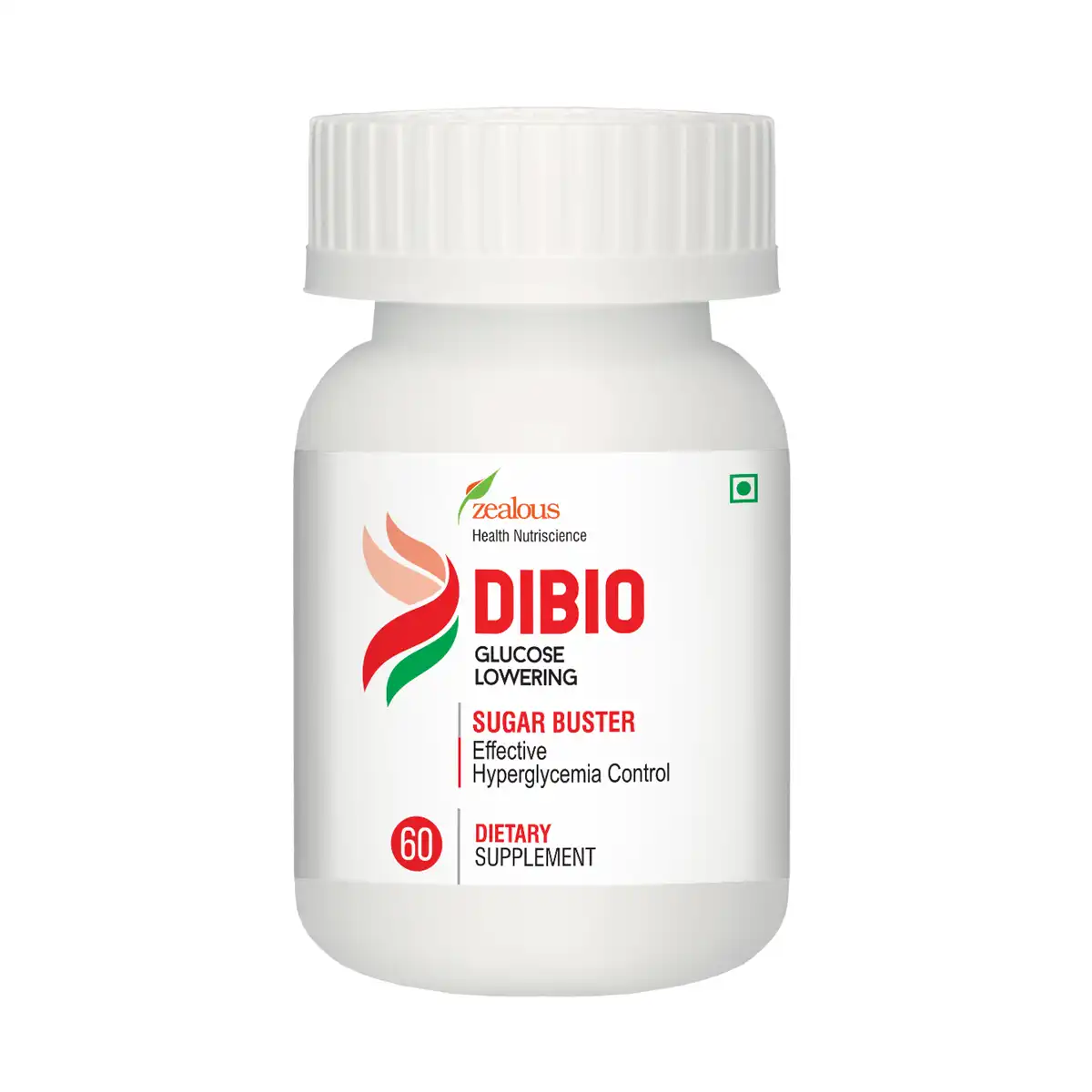
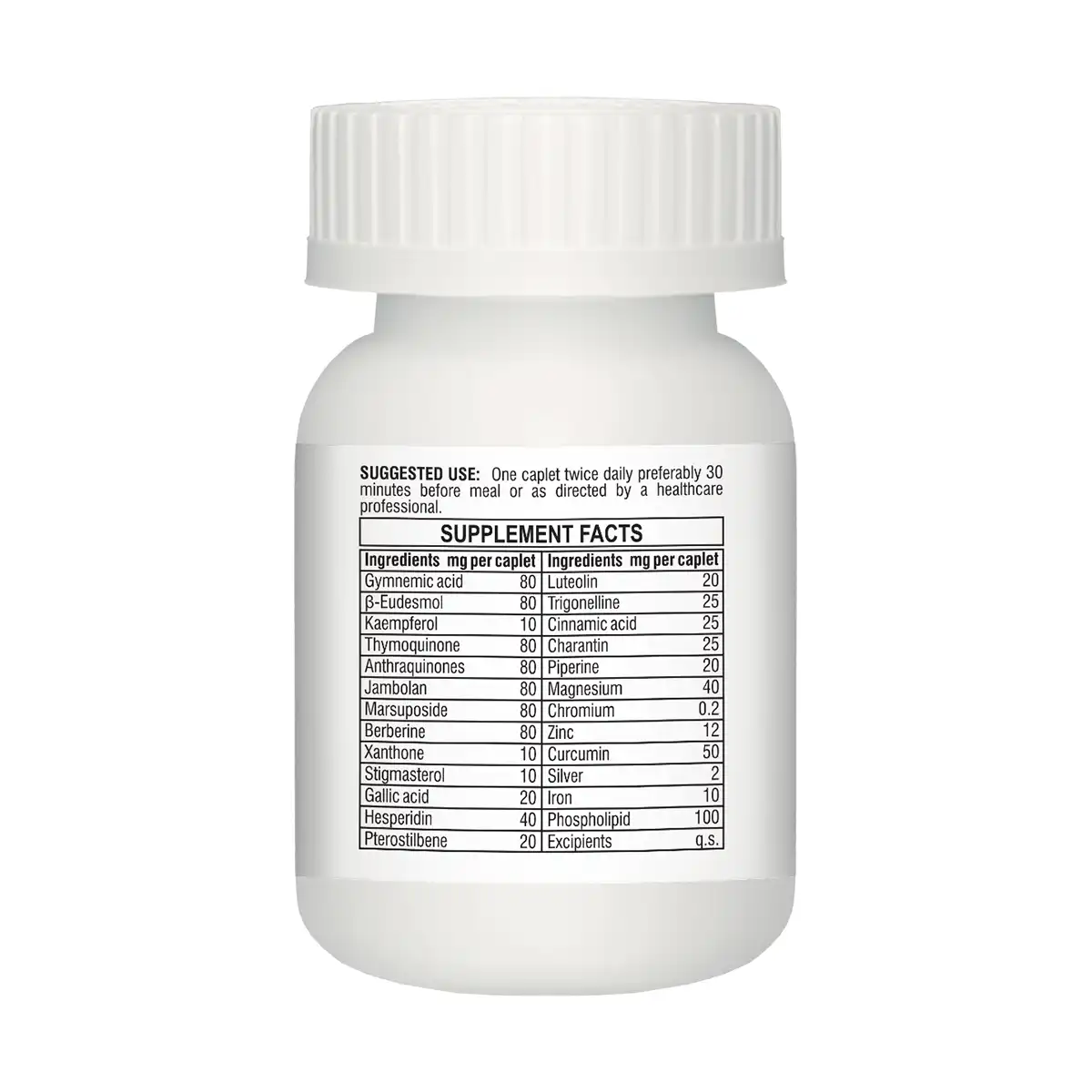
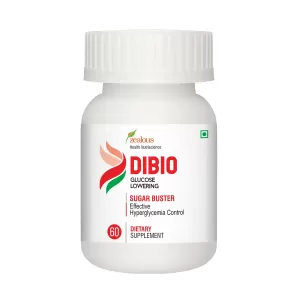
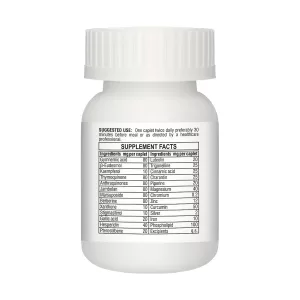
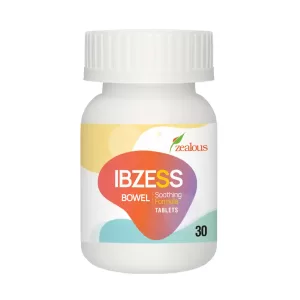
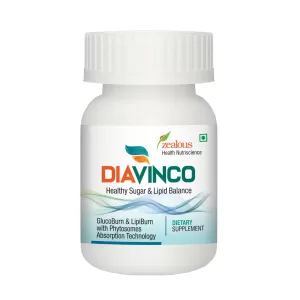
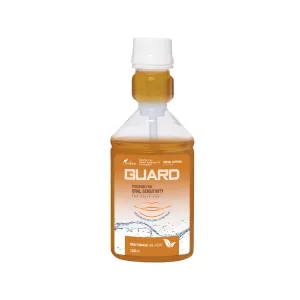
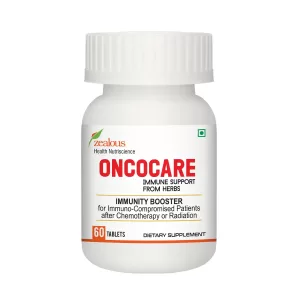
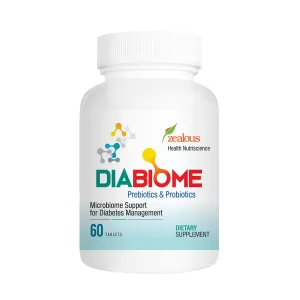
vihaandigitals –
Nice producrs
vihaandigitals –
HI nice product